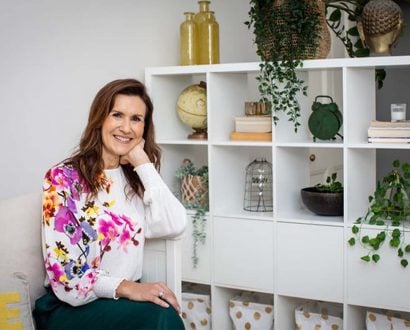Excuses hold us back – hindering our performance, productivity and motivation. They serve as a personal protective mechanism that stops us from being viewed as incompetent if a decision does not turn out well, if we cannot deliver on a promise or to serve as an opt-out if a task or situation is proving too hard.
We all make excuses: “I’m too tired”, “I don’t have enough time”, or “I don’t have the skills”. Sometimes they are effective in helping us shift attention or minimising the severity of a decision, however in essence, excuses allow us to deflect responsibility from ourselves to an individual or situation external to us. Understanding why we make excuses can help us lead more effectively and with confidence through understanding our individual excuse-making preference.
Excuse making is closely aligned to the locus of control, which refers to the extent to which individuals believe that they can control events that affect them. This thinking was developed in 1954 by Julian B Rotter who explained that a person’s locus or location was either internal, where the person believed they could control their life, or external, where the person believed their choices and life were controlled by factors they could not influence or change.
People who have an internal locus of control take control of the choices they make. They own the outcome and make a conscious effort to stop excuse making in its tracks. Repetitive excuse making can affect the level of trust and faith in a person as it can be seen that the individual is deflecting responsibility for their actions – not a trait admired in leaders.
Taking control of excuses requires an awareness of our own behaviours. When repeatedly made, excuses start to occur in our sub-conscious thinking, so we are not even aware we are making them. To stop them from taking over we need to practice self-regulation through making a conscious effort to change the excuse to a solution. When we are pressured, tired and overwhelmed it can feel easier to make an excuse rather than put the effort into finding a way to change it or find the solution, however it will be worth the investment.
Stop excuses from taking control:
Call the excuse for what it is.
When we hear an excuse turn up in our language, immediately acknowledge it, admit what is really happening or has happened and take it as a lesson. Is the excuse valid or are we trying to use it as a way out of a situation? Call the excuse for what it is. Taking ownership for our excuses means we can start to look for ways to overcome or minimise them.
Become a solution finder.
Solution finders can be frustrating if you are an excuse reinforcer. Solution finders see opportunity and have the ability to learn and move on. Excuse reinforcers are the opposite; they look for opportunities to gain support for their excuse. Solution-focused thinking is taking a problem, considered through logic and intuition, then turning attention to what is possible and with this information make the best considered decision.
Slow down to gain perspective.
Falling into the excuse trap is easy to do when life is busy, leading to an unproductive cycle. Acknowledging when excuses start to take hold again will require time and space to reflect and slow down. Taking a moment to press pause allows an opportunity to gain perspective and through doing this gain clarity as to why the excuses are starting to creep back in and to make the necessary changes or ask for help before they take hold.
There are many people who have turned excuse into opportunity and show us that no matter what hurdles we face in life there is always a choice. They found a way to remove the excuse trap, we can too.





